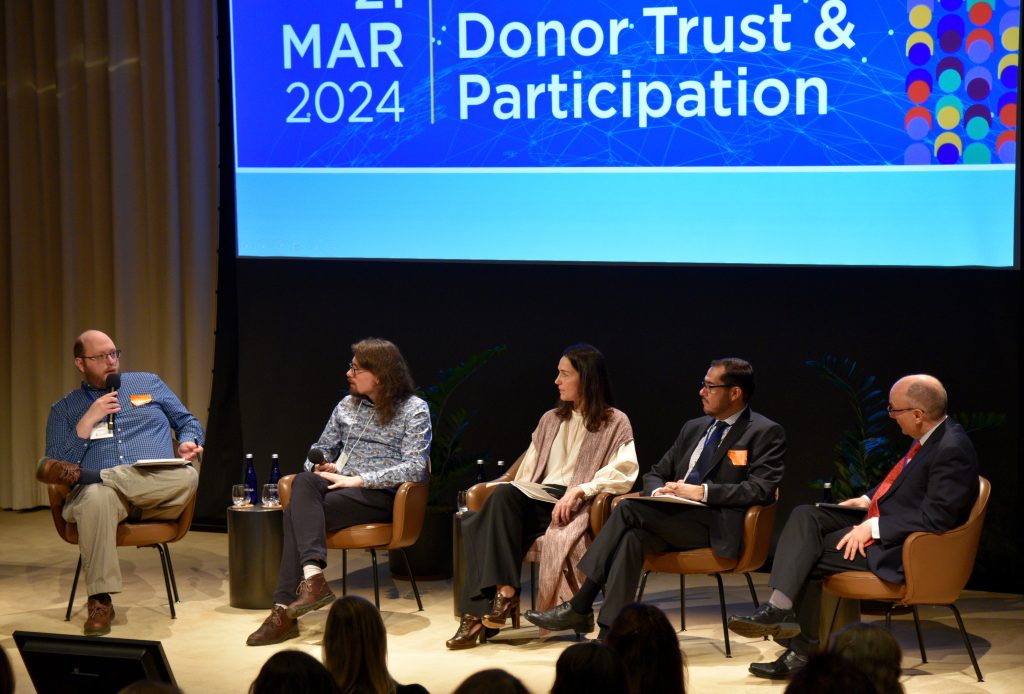Wise Giving Wednesday: Is the Donor Participation Crisis an American or a Global Issue?

Is the Donor Participation Crisis an American or a Global Issue?
At the Donor Participation program hosted by BBB Wise Giving Alliance on March 21st in New York City, the opening panel explored whether the declining number of households giving to charity is confined to the United States or a global phenomenon? We invite you to watch the full panel discussion here.
John Bergdoll, Associate Director of Data Partnerships and Statistician at Giving USA, moderated this session and began with a brief overview of the donor participation crisis in the United States. As Bergdoll explained, “…following the great recession in 2008…we see the overall incidence rate of giving declining and it has not stopped since.” Contributing factors include the decline in trust for institutions, the concentration of giving by wealthier people, and a generational trend of each younger cohort giving at lower rates than the last.
In Germany, (as described by Bergdall on behalf of Burkhard Wilke, Chief Executive Officer of the charity monitoring organization known as DZI, who was unable to attend) studies do not share a consistent conclusion but point toward a similar decline in the portion of Germans donating to charities. Leading factors identified by Wilke include the decline in religious affiliation, the erosion of trust, and an increase in of informal giving (for example, helping people directly instead of donating to charitable organizations).
Michael Dennis Layton, representing Confio, the charity monitoring organization in Mexico, highlighted the importance of political context, as exemplified by the high distrust in the nonprofit sector in Mexico. A recent survey showed that, in Mexico, nearly 80% of people prefer to give directly to a stranger. Only 13% said they prefer to give to an organization. Layton attributed this preference to broad distrust for institutions, partly as a consequence of well-known scandals. Javier Garcia Gutierrez, Executive Director of Confio, noted that there are 48,035 not-for-profit organizations in Mexico. Of these, 10,605 are the equivalent of U.S. charities.
Ana Benavides, Executive Director of Fundación Lealtad, the charity monitoring organization in Spain, said that approximately 40% of Spanish adults contributed to charities during 2022. This leaves 60% of the Spanish population which does not give. Of those who did not donate, 39% said the primary reason was lack of means (financial), followed by 36% citing distrust. Benavides noted that, according to the 2024 Edelman Trust Barometer, charities are viewed as more ethical than other sectors, but lagging in their ability to demonstrate competence.
Diederik van der Plas, Data Analyst & Researcher with CBF, the charity monitoring organization in The Netherlands, observed a tradition of giving among older generations, with younger generations being less engaged. Trust in charities, however, is similar across generations, suggesting that there is potential to engage upcoming donors by better understanding how they communicate with the world. As an example, van der Plas pointed to using influencers through social media platforms.
Heart of Giving Podcast
This week’s Heart of Giving Podcast features two guests: BBB WGA’s Ezra Vázquez-D’Amico, Manager, GiveSafely.io and Jeremy Kirshbaum, CEO, Handshake. They describe a groundbreaking new project – an AI-powered tool that’s set to alter the way donors make informed giving decisions.
Recent Reports
We are always working with charities to publish or update reports for donors. Visit Give.org or local BBBs to check out any charity before giving. Our recently evaluated charities include:
Finally, remember to let us know by going to give.org/charity-inquiry if you are interested in seeing a report on a charity not on the list and we will do our best to produce one.


